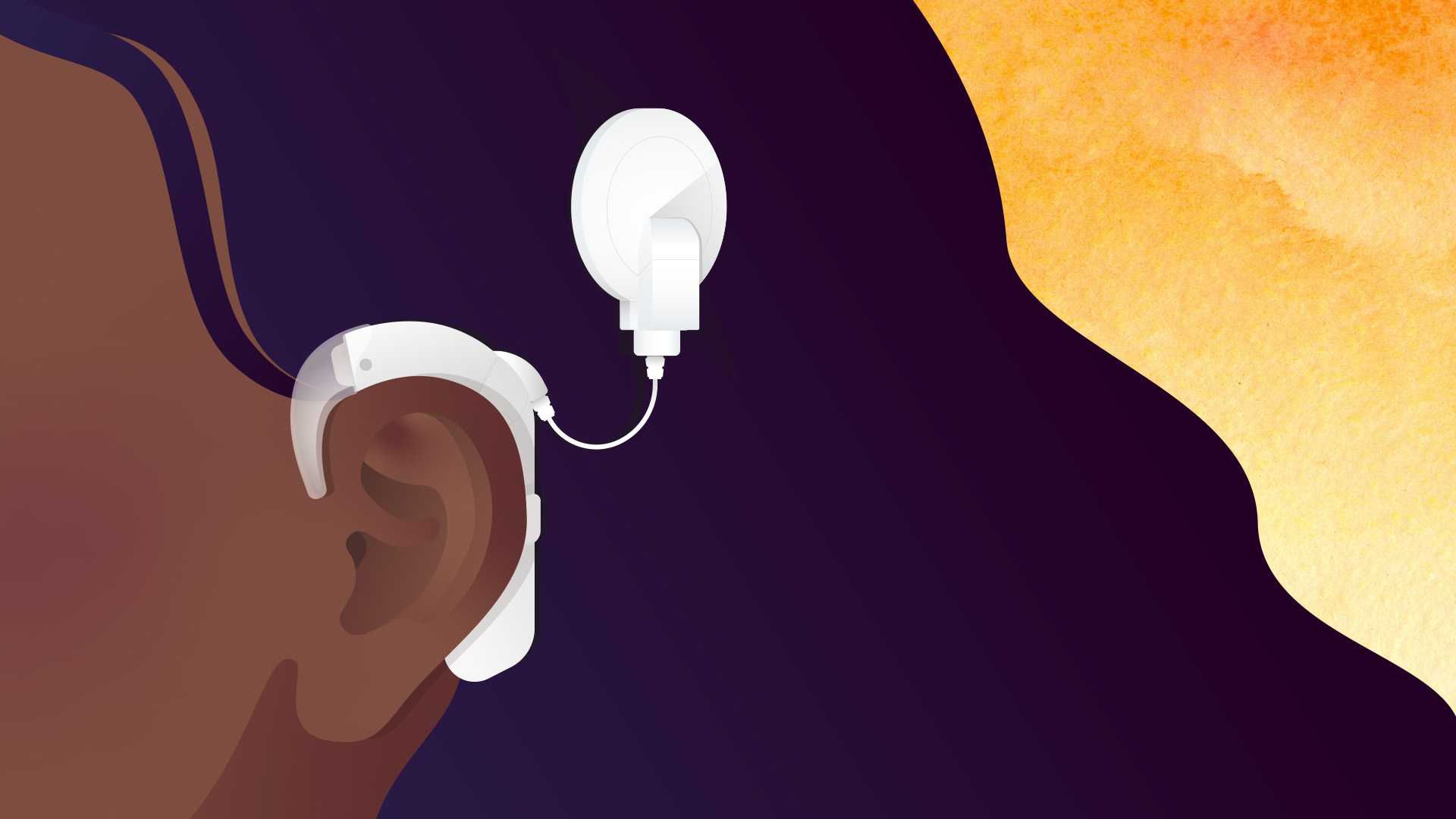
Hearing Aids vs. Cochlear Implants for Older Adults

Hearing loss becomes a common problem as people get older. While most adults may think that hearing aids are the only option, in some instances, cochlear implants may be appropriate. How do hearing aids vs. cochlear implants for older adults compare? Both devices improve your ability to listen, comprehend, better communicate, and perceive environments and people around you. And both hearing aids and cochlear implants improve one’s hearing loss. However, the choice between hearing aids vs.cochlear implants for older adults comes down to your type of hearing loss and the procedures and risk you’re willing and able to undergo.
Find What You Need
What are Hearing Aids and Cochlear Implants and What are They Used For?
One primary difference between the two is that hearing aids are external while cochlear implants are a mix of external and internal parts that are more complex.
Hearing aids are small electronic devices that people with hearing impairments wear inside or behind their ears. Hearing aids increase sounds in the wearer’s surroundings and improve what they can year.
Cochlear implants are also electrical devices with the same intentions – to improve hearing and quality of life, particularly in hearing speech. However, unlike hearing aids, cochlear implants circumvent damaged segments of the ear, transferring noise signals to the auditory nerve. A cochlear implant consists of a transmitter, a microphone, and a speech processor behind the user’s ear. Underneath the skin, there’s a receiver and a stimulator. Meanwhile, electrodes are inside the cochlea to produce sound.
How are Hearing Aids and Cochlear Implants Different?
Cochlear implants require surgery because parts of the device are placed underneath the skin and inside the cochlea. Like any surgical procedure, there’s a low to moderate risk associated with this surgery and you have to be healthy enough to undergo a surgical procedure.
Hearing aids are predominantly external and are not surgical. The farthest a hearing aid will be is moderately deep within the ear canal, which is painless and far less evasive compared to cochlear implants. Hearing aids are completely removable while cochlear implants are not.
Your doctor will often recommend one over another depending on the type of hearing loss you have and its severity. Hearing aids are typically used for those with conductive or sensorineural hearing loss. Conductive hearing loss impacts the outer or middle ear, whereas sensorineural hearing loss comes from the inner ear or the hearing nerve.
Cochlear implants are only used for sensorineural hearing loss. Cochlear implants are the last case scenario after someone has tried and failed with using hearing aids, as implants are made to accompany someone with profound hearing loss or they’re completely deaf.
Noises sound different on each, too. Hearing aids intensify acoustic noises based on frequencies. Cochlear implants use electrical stimulation, which converts acoustic sounds to electrical signals. These signals are sent to the hearing nerve, and then onward to the brain. In terms of speech, hearing aids often improve this slightly more than a cochlear implant would but increase speech comprehension by roughly 50 percent.
Adapting to both types of hearing support vary widely – it often takes several weeks to adapt to a hearing aid whereas it can take upwards of a year to become adapted to a cochlear implant. If you need to fix the receiver in either device, hearing aids only require a little bit of fine-tuning and volume increasing to fix it. Cochlear implants can be adjusted, too, though users report that there is a fairly long adjustment period as healing takes time and the way you perceive sounds can vary during this time.
Are Older Adults Good Candidates for Cochlear Implants?
Older adults are absolute candidates for a cochlear implant procedure. Although hearing loss tends to increase as you get older, age holds no barrier in acquiring this surgery. They are mainly given to young deaf children but are also incredible in assisting auditory senses in older adults. However, stipulations to getting cochlear implants revolve around the cost of surgery and require patients to be in relatively good health so they can endure the components and possible complexities of surgery.
What are the Types of Hearing Aids and Cochlear Implants?
There are various types of hearing aids out there that are most suitable for your comfort and preferences. Hearing aids are typically characterized by how visible they are and how they fit onto or into the ear. However, the smaller a hearing aid is, the less it can treat severe hearing loss. In addition to analog and digital hearing aids, there are also numerous options for how the hearing aids are fitting into or around the ear. They can be Open Fit, Receiver In Canal (RIC), Behind the Ear (BTE), In The Ear (ITE), In The Canal (ITC), Completely in Canal (CIC), and Micro Completely In the Canal (MCIC).
Unlike hearing aids, cochlear implants have less variety. Unilateral implants are for one ear. This is the most common form of a cochlear implant. Bilateral implants are for both ears. However, having two implants increases the cost, and because of the slight risk due to surgery, getting bilateral implants will increase the risk compared to getting a unilateral implant. Sometimes it is felt that using two implants compared to one will improve auditory senses even more.
How Much do Hearing Aids Cost vs. Cochlear Implants?
Hearing Aids
Hearing aids range from $1,000 – $4,000 depending on the level of technology used. However, most hearing aids are not covered by insurance. You should evaluate your options with your insurance provider for any financial benefits. Moreover, most plans out there only cover a specific portion of the hearing aid cost, varying on the plan and the insurance.
Cochlear Implants
Cochlear implants range from $30,000 – $50,000, depending on the technology and severity of the patient’s hearing loss. However, most major insurance providers cover the cost of the implants or a large portion of the procedure. An overwhelming stipulation to insurance coverage of pre-existing conditions. Moreover, things like replacing the battery or fixing various parts like the magnets may or may not be covered by insurance. When considering different implants, it is important to keep the warranty in mind, as things will most likely need to be fixed or replaced later with further usage. Scheduling a consultation with an audiologist and speaking to your insurance provider for financial benefits is greatly recommended.
Summing Up Hearing Aids vs. Cochlear Implants
No matter how severe your hearing loss is, there are options out there for everyone. There is an ample array of prices, models, sizes, and benefits with either option. Both hearing aids and cochlear implants aim to improve your hearing so that you can enjoy life without enduring the loss of one of your senses. It is imperative to consult your healthcare provider on what steps to take after a physical evaluation of your current auditory senses.



